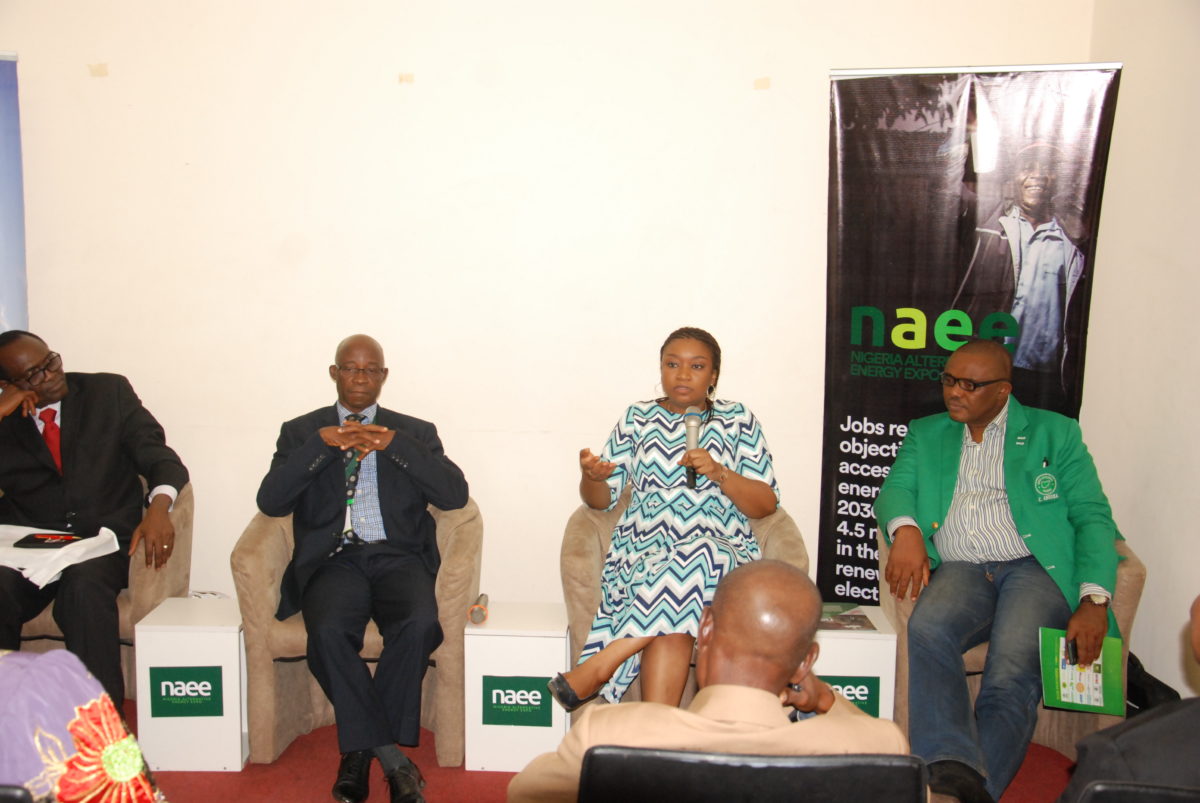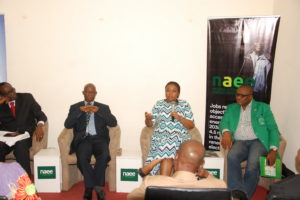In an interview on the recent launch of his book on green economy – Green Growth, Pathway for Nigeria – the President of Sustainable Energy Practitioners of Nigeria (SEPAN), Dr. Magnus Onuoha, told Chineme Okafor that if Nigeria’s renewable energy sector gets 50 per cent of the power intervention fund shared to other power operators by the Central Bank of Nigeria (CBN) with minimal results so far, it will generate up to 10,000MW of electricity for the country within two years, in addition to creating millions of sustainable jobs. Excerpts.
Your book – Green Growth, talks about opportunities available to Nigeria in green energy, is the country really ready for such green growth revolution?
The book is on green growth development pathway for Nigeria. Green growth pathway does three things – build livelihood, improve quality of life and alleviates poverty. The three critical sectors that drive this process are sustainable agriculture, energy (renewable and energy efficient sources) and infrastructure. They were appropriately addressed in the book.
The value chain is huge if Nigeria follows green growth pattern to the letter. For instance, for every one megawatts of solar power deployed, apart from the revenue yielding components there are over 3000 jobs up for grab in terms of artisans, inverters technicians, and constructions.
From SEPAN’s recent renewable energy expo, far-reaching resolutions were agreed, could you share some of these with us?
The sixth edition of the NAEE was a huge success in terms of attendance of critical stakeholders. As you are aware, NAEE is one of the flagships of SEPAN.
Far reaching resolutions were indeed agreed upon, chief among which is ensuring that renewable energy and energy efficient sources are mainstream investment in Nigeria, effectively partnering with the government to see to the development of Nigeria’s Nationally Appropriate Mitigation Actions (NAMAs) and Measurement, Reporting and Verification (MRV) frameworks for the smooth implementation of our Intended Nationally Determined Contribution(INDCs) as committed and signed by President Muhammadu Buhari under the Paris Agreement.
Effective implementation of Nigeria’s INDC will open up alternative sources of revenue to finance our budget, more so now that our revenues receipts are dwindling due to recession.
How do you view Nigeria’s plan to build 14 new solar farms that will generate 1125MW of electricity?
It is a welcome development. However, it is worthy of note here that the Power Purchase Agreement (PPA) between government and renewable energy developers is merely an instrument to source for funds. It is a necessary but certainly not a sufficient condition for effective growth of the sector.
They might encounter further hiccups in the process of sourcing for these funds. That is why we are imploring the Federal Government to fast track policy road map for the elimination of challenges inherent in the cost of funding clean energy infrastructure in Nigeria.
Now is the time to bridge the deficiency in energy infrastructure in Nigeria. It is unthinkable that as the largest economy in Africa with over $510 billion in Gross Domestic Product (GDP) and this growth over the years is not commensurate with the growth in energy infrastructure. We are still generating less than 4000MW, transmission hiccups and vandalism have even made it to an all-time low of 3000MW.
If CBN alone as part of it policy intervention fund could channel 50 per cent of the N300 billion intervention fund to renewable energy sources, RE will be generating over 10000MW in the next two years. Compare that to billions of dollars spent in the power sector over the years and we have less than 4000MW to show for it.
Do you agree with the government’s recent claim that renewable energy is too expensive to use?
It is not true. Renewable energy is not expensive in comparative terms. This is where the world is going – clean energy and Nigeria is in the equator.
We have not exploited the abundance of solar energy and indeed other sources of renewable energies. Germany and most of these developed climes that are in the temperate region, three-quarter of their energy system comes from solar.
Like I will always air my view, let’s be economical in the exploration and exploitation of non- renewable sources of energy such as oil and coal. This is because they are not easily regenerated and replaceable. Let’s develop strategic reserves at least for our future generation to see them. Most countries have started in that direction. Let’s channel reasonable amount of our resources into renewable energy and energy efficiency sources, in line with the present development thinking – green growth pathway.
There is a renewable energy policy of the government with targets, are they feasible?
It is not a question of feasibility or not but the political will on the side of government to effectively see to its implementation. There are several challenges and one is very glaring – fighting the entrenched system.
There are people even within the government that may want the status-quo to remain. They want the supply of diesel to ministries, departments and agencies (MDAs) to continue in place of solar panels.
Working with a group of consultants, we have had cause to suggest the conduct of an energy audit to some institutions in Nigeria and consequently retrofitting of their building to solar or hybrid of wind and solar. Our report was turned down as some people even in management felt that we will deny them additional income they get from supply of diesel to their plants.
The renewable energy policy is also in line with Nigeria’s INDC and with President Buhari’s commitment at Paris of using renewable and energy efficiency to reduce Nigeria’s emission by 20 per cent in the short run on or before 2020 and 45 per cent in the long run on or 2030.
It is achievable because of the character of leadership in place in Nigeria today that epitomises transparency, accountability and probity. I see Nigeria’s effective take off of our INDC/NAMAs implementation plans in 2017. The minister of environment is passionate and very committed and I am happy about it. So, the appeal I have to doubters and pessimists is to go home and have their two eyes closed in this regard. Certainly Nigeria will ratify and will not be left behind in the carbon business and climate finance opportunities thereto.
As a signatory to the Conference of Parties (COP) Agreement on climate change, is Nigeria in a very comfortable position to implement its requests?
Nigeria has gone beyond signing. What we are waiting for is ratification. Like I said earlier Nigeria will certainly ratify and will not be left out. You know the implementation of the Agreement commences by 2020. But we can commence the development of framework and mainstreaming some of these commitment in our INDC into our national budget.
We have 13 sectors of the Nigerian economy as identified in our INDC impacted by climate change. They should be captured in our national budget, exploring their revenue components as well


